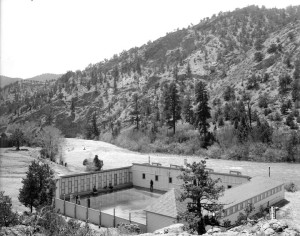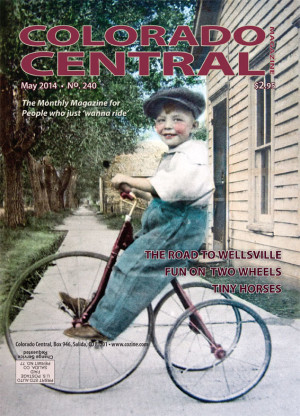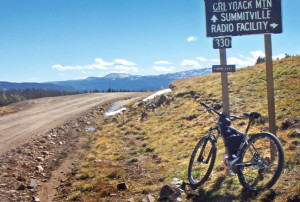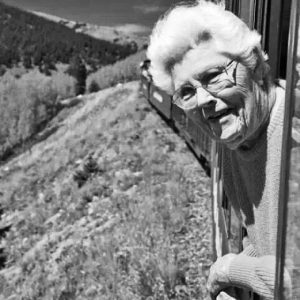By John Mattingly
Cliven Bundy is the Nevada rancher who has gained national attention recently for orchestrating an armed resistance to the BLM’s attempt to round up his cattle for non-payment of about a million dollars in fines and fees. Bundy claims it’s only $300,000, but either way, it’s a significant amount of money.
The nub of the conflict is that Bundy’s grazing privileges were curtailed by the BLM due to the listing of the desert tortoise as a threatened species on the vast BLM range where Bundy historically ran his cattle. “Privilege” is the key word here. Ever since the Taylor Grazing Act of 1934, the BLM has been struggling and litigating to make it clear that grazing privileges are just that: privileges, not property rights, and not any species or sub-species of a property right. They are grazing privileges, granted at the pleasure of the BLM. The property belongs to the public. Public lands are owned by the public. Obvious as this is, it has taken decades for ranchers to fully understand what that means.
For about forty years after the Taylor Grazing Act, many ranchers (and bankers) considered grazing “permits” from the BLM and Forest Service to be a kind of property right: transferable, with rights of possession and control, and therefore, bankable. Ranchers in Nevada were given loans based on the grazing permits associated with their base property, which tended to give ranchers the impression that they had an ownership interest in the grazing permits. But, in reality, they did not.Given that Western states have a large public lands quotient – Nevada is still 87% public lands – meant that a lot of the state was being used by ranchers at grazing rates well below the market rate. As public awareness grew in the 1970s and ‘80s of the great deal ranchers were getting, together with mounting pressure on the BLM to allow multiple uses on public lands, a series of court cases in the late 1980s early 1990s established, beyond a reasonable doubt, that grazing permits were a privilege, and public land is public land. Period.
Meaning: if the Endangered Species Act (ESA) comes along with a claim on public land, the holder of a grazing privilege on that land has to curtsy to the Federal law. Every rancher knew, and knows, that the ESA card is in the deck of possibilities with a grazing privilege, and that card might be dealt to them. Ranchers don’t expect it to be dealt, and hope it won’t be dealt, but to pretend like it is unfair when dealt, is simply being disingenuous, and a bit childish.
Of course, to a long-time rancher, taking cattle off cheap grass for the benefit of a few turtles is, as Bundy himself said, going to result in “500,000 fewer hamburgers.” In the grand scheme of things, a person might be tempted let this go with a big yawn – given that fast food places serve over a million burgers a day – and I know several health professionals who might credit a burger reduction of that magnitude as a marginal benefit. But, to a rancher, protecting turtles at the expense of cheap grazing is like burning the American flag on a stack of Bibles.
Predictably, turtles-for-cows by way of a federal law, like the ESA, brings out the worst in otherwise decent people. One can easily imagine Bundy’s personal horror when the whole turtle issue crawled into his religion like the proverbial turtle beating the speedy rabbit. For several generations, Bundy and his family have run cattle on Nevada rangeland for pennies, and more recently, for free. They have developed waterholes, built fences, and breathed the dust of every saddle drive into their souls. Now they are losing all that for the benefit of turtles? Yup. It’s the law. And everybody, including Bundy, knows it.
But to hell with the law. Bundy managed to rally considerable support for his cause in the form of armed militia volunteers, whose IQ might be estimated by the posting at their protest command post: SIGHN IN. Many did “sighn in,” and with large weapons slung over their shoulders, spoke of this being the last line in defense of their freedom. It’s difficult to respond to this level of historical and judicial ignorance. It’s like trying to play chess with someone who doesn’t know how the pieces move.
The Feds and BLM deserve congratulations for not forcefully engaging Bundy’s ragtag militia of misguided and misinformed clowns. The fact that these humorless morons brandished automatic weapons in defense of issues that were decided against them on the merits long ago, makes their actions more reminiscent of cowardly hostage takers than “terrorists” as characterized by Harry Reid.
The Feds will grind out this conflict in the courts, and eventually Bundy will settle. I am among those who hope this latest display of stupidity will result in a less favorable settlement for Bundy, perhaps resulting in him having to give up his cattle and a good bit of what he owns to settle his account for grazing.
It’s hard to imagine, and also a peculiar testament to the state of our court system, that Bundy has been able to stall off paying his bill for some twenty years. This, even though the bill for grazing BLM lands is lower than the market rate by several orders of magnitude, and grazers like Bundy are not required to fertilize the extensive range on which they run cattle. The typical rancher perception is that federal grazing lands are some sort of perpetual grass-making machine, powered by sun, rain, and cattle, even though the cattle remove more minerals than they leave behind, particularly phosphorus removed by teeth and bone.
For reasons I’ve detailed in previous columns, cattle ranching really isn’t a business, it’s a hobby, like raising dogs. Cattle, in fact, are just big dogs, kept as very expensive pets by ranchers. Bundy is a cow hobbyist, bumbling proof that, even with a million dollars worth of free feed, his herd of some 400 cows needs a bunch of delusional gun nuts to fight off the bill collectors with another insanely pathetic appeal to “protecting our freedoms.” Would that be the freedom to not pay your bills? Or would it be the freedom to ignore the law?Fewer people in the West now have ridiculous romantic notions about cowboys and ranching. We are waking up to multiple realities: (a) cattle produce more greenhouse gas (as methane) than all the autos in the U.S., (b) beef causes heart disease and other circulatory disorders, (c) forcing feeder cattle to stand in their own manure for six months while consuming corn that is poisonous to their gut and liver is a dubious use of resources and does not produce a healthy product, and (d) cattle ranching succeeds only with subsidies that come in the form of cheap federal grazing, a job in town, or an oil well in the pasture.
The cow-calf end of the cattle business is massively undisciplined in the U.S. The average herd size in the U.S. is less than fifty head, meaning that ranchers without cheap federal grazing, or an oil well, are willing to pick their own pockets for the privilege of keeping ten to fifty head of pet cows and drive around in a dually pickup wearing a cowboy hat. The pet cow nature of the business – that is, the significant number of producers willing to produce at a loss – keeps the feedlots full of relatively cheap feeder beef.
Agricultural statistics indicate that there are no profitable cattle ranches in the U.S. when all costs, including externalized costs, are given ledger status. So we have people like Bundy and his buddies blowing smoke up our collective pant legs with all this nonsense about states’ rights, freedom, and the federal government to distract us from the fact that they are engaged in a business that needs various kinds of welfare to survive.
A little history: When we think of the Western United States, we can’t help but think of pioneers and covered wagons, miners and burros, cowboys and horses, farmers and mules who came West to homestead. It’s a diorama of rugged individuals conquering a primitive, and often dangerous, land, making a living with hard work.
Newcomers to the West get a whiff of that spirit, that independence, and they might even see a swath of Earth the way it was before humans got carried away with development. The swagger of the good ol’ pioneer spirit is manifest in Western art, advertising, lifestyle, and general attitude, especially toward the government.
The reality of “How the West Was Won,” however, includes a player who is intentionally omitted from the pioneer script. Going back about 170 years, the West was territory occupied by Native Americans, but a part of the Louisiana Purchase, acquired by France under the Christian Doctrine of Discovery allowed European nations to claim territory for their king and slaughter off any non-Christian inhabitants.
Uncle Sam’s development concept for the Purchase was to give the land away as homesteads. This was unique. Seldom in the history of the world has government given land away to “the people.” But it was done in the U.S. on the theory that small farmers were “incorruptible peasants.” Thomas Jefferson obviously did not anticipate the likes of Bundy in his assessment. The Feds even provided security for the land giveaway, killing off the natives who wouldn’t accept a reservation.
The land giveaway was partly successful, as homesteaders settled only the best and most productive lands. Colorado is still about 40% public lands, Wyoming 70%, and Nevada 87%. So not only did the new “landed peasant class” get free land, they got to choose. They literally looked a gift horse in the mouth, and were protected from the previous “landowners” while they did it.
The homesteaders needed to be connected to the rest of the economic web, so Uncle Sam built the railroads, giving the railroad builders unsettled territory – a checkerboard of 640-acre sections – in exchange for the opportunity to make money shipping goods in and out of the West.
Of course, the homesteaders also needed water for towns and fields, so Uncle Sam subsidized the building of reservoirs and ditch systems through the Bureau of Reclamation. Most of the “loans” between the private sector and the government were never paid back, and this piece of Western history is documented in books, such as Cadillac Desert.
The West also needed power, so Uncle Sam came along with Rural Electrification, which never would have been possible as a private venture because the rural West was so sparsely settled in many regions.
If free, cherry-picked land serviced by railroads and supplied with water and power weren’t enough to give the rugged individuals of the West a good shot at a living, Uncle Sam tossed in a couple of additional benefits. The first was free grazing of the land that couldn’t be given away during the Homestead Act, followed by free access to public lands for mining under the Hard Rock Mining Act. Uncle Sam then built roads into the public lands to make it a little easier to access these benefits.
All in all, the Western United States is one of the biggest socialist regions in the world. Anyone who brags about being a fourth or fifth generation descendant of homesteaders in the West might want to think first about how much the federal government had to do with the success of their pioneer ancestors.
Many residents of the West are quick to complain about big government, about too many Feds milling around, sticking their noses into private business. Our bias out here in the West definitely favors less government. Just send the money; we’ll take care of it from there.
To put Bundy’s claim in some sort of perspective, a law recently passed unanimously in the Nevada state legislature declaring all federal land within Nevada’s borders to be property of the state of Nevada. The same day the law passed, Nevada legislators flew to Washington D.C. to ensure the flow of federal funds related to those federal lands would not be interrupted. This incident hollows out Bundy’s already empty claims that he and his band of blown up banty roosters don’t recognize the Federal government.
This is not to suggest that the rugged individuals who first settled the West had an easy life or that they were given too much. No, the point is that settling the West was a cooperative venture between tough and talented individuals and a government willing to provide substantial infrastructural support.
When we talk about pioneering spirit in the West with all its iconic figures, we need to include Uncle Sam riding a large white horse among the pioneers, miners, cowboys, and dirt farmers. But nowhere in this iconic image is there room for ignorant pikers like Bundy and his band of boneheads.





This article, A Load Of Bull, by John Mattingly, needs to go national.
whatever, it’s not like the government gave a crap about tortoises when they detonated all those nukes in Nevada!
As a cattle rancher near New Underwood, SD, all on private land, I would agree completely with the title. The article is truly a load of bull. I could virtually write another PhD thesis contradicting much of the information therein, but one thesis is enough so I will add just a few comments.
For a different perspective on the Bundy issue, I would recommend “Patterns of Harassment” in the Fall 2014 issue of Range. In terms of the worthwhile preservation of the desert tortoise, what, actually, does the BLM think that the desert tortoise eats? Sand? Have they any documentation to establish that the number of such tortoises has diminished with the water development and extended grazing areas? I suspect the tortoise population has actually increased and am convinced that it would continue to do so with good grazing management. Turtles eat vegetation, and proper management increases vegetation. With respect to the impact on land of appropriately managed cattle grazing (and here I have some concerns about the Bundy operation) I would suggest at least a casual acquaintance with the work of Alan Savory (e.g., https://www.youtube.com/watch?v=_CSn-pXnRRM).
Just to dispel a random few of the stereotypes implicit in your article: a.) I do not have an oil well in the back 40 nor do I work in town nor did I inherit the ranch nor is it a hobby. b.) Cattle are a useful tool to restore the topsoil and help solve many environmental problems. c.) Cattle do NOT need to ever consume grain and never need to set foot in a feedlot.
What Mr. Howie left out is that all lands not falling under the conditions of Article I, Section 8, clause 17 of the United States Constitution fall under the jurisdiction of the state once a territory becomes a state. This held true for all states east of the Mississippi River, but with the Civil War looming, was thrown out the window when California became a state so the federal government could control the gold. Once that precedent was set, the rest of the remaining territories were bullied into giving up their land. Until 1906, there was not a single acre east of the Mississippi river which did not comply with this portion of the Constitution.
Furthermore, the desert tortoise appears nearly extinct during drought, When the rains come in enough volume they come out of hibernation and appear plentiful.